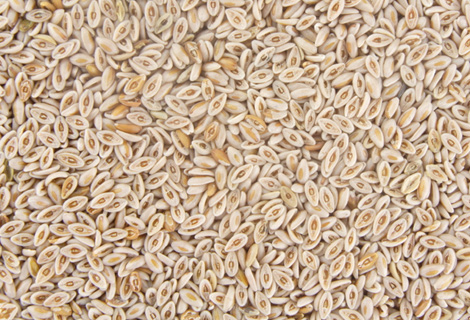Psyllium Seed
Psyllium, sometimes known as Ispaghula or Plantago is a natural herb-plant grown natively in very few Indian states; Gujarat and Rajasthan (Manufacturing location for Psyllium Labs LLC) Psyllium gets its name from a Greek word Flea, which explains the shape, size and whitish color of the seed.
The seeds of this plant are widely used for its Mucilage, which is almost 30% of its content.
The magic of this plant is when placed in water, it swells up to 14 times its original size, as a thickened layer of mucilage is formed around the seed, which lubricates and cleanses all the areas it passes through. It is for this reason it is widely used for intestinal health. Psyllium has also been used to promote heart health as it has been claimed to lower bad cholesterol.
The seeds of this plant are widely used for its Mucilage, which is almost 30% of its content.
The magic of this plant is when placed in water, it swells up to 14 times its original size, as a thickened layer of mucilage is formed around the seed, which lubricates and cleanses all the areas it passes through. It is for this reason it is widely used for intestinal health. Psyllium has also been used to promote heart health as it has been claimed to lower bad cholesterol.
Chemical Composition
Psyllium contains about 70% soluble fiber and 30% insoluble fiber. The psyllium seed is made up of 40% Linoleic Acid (LA), an important fatty acid essential to health, and as the psyllium seed is an all natural substance to provide bulk fiber. It also contains about 19% fiber content, 18.8% proteins, and 10-20% triglycerides. The seed mucilage consists of polysaccharides which is a soluble fiber."
| Color | Light brown to moderate brown |
| Odor | Faint, characteristic |
| Taste | Bland, mucilaginous |
| Particle Size | Maximum 1.0 % on U.S.S. 10# |
| Moisture (loss or drying) | Maximum 12.0 % |
| Total Ash | Maximum 4.0 % |
| Acid Insoluble Ash | Maximum 1.0% |
| Foreign Organic Matter | Maximum 0.5 % |

